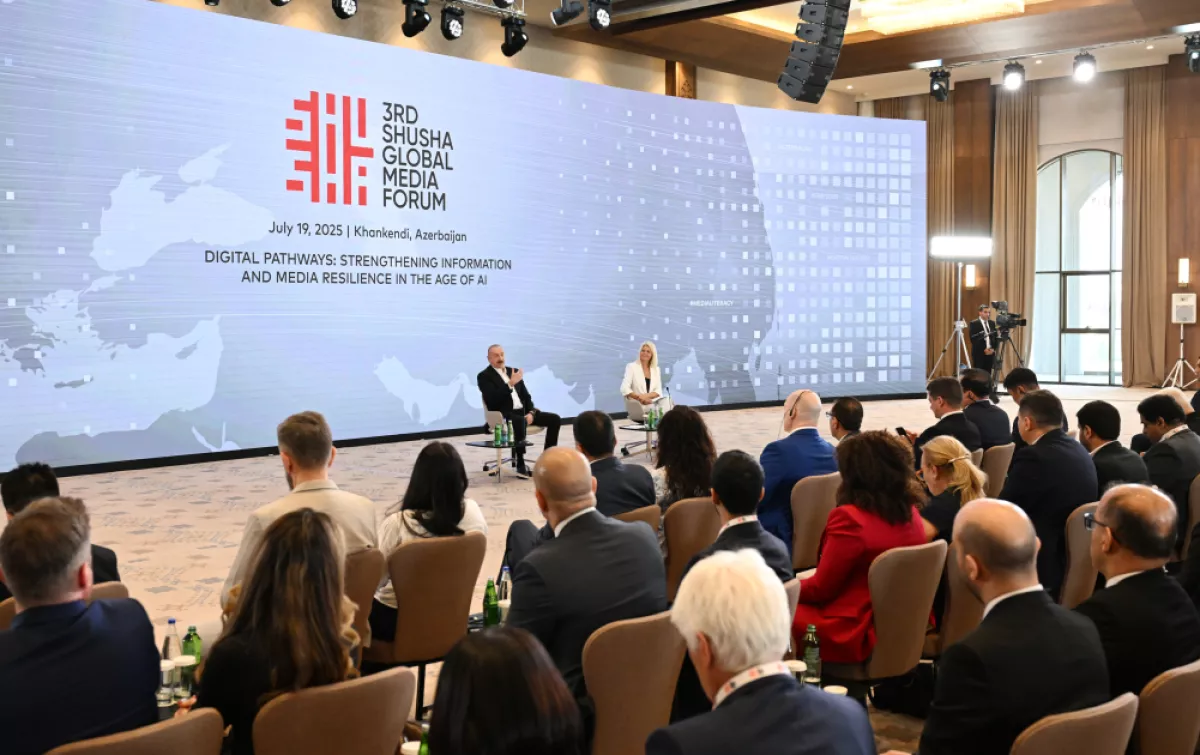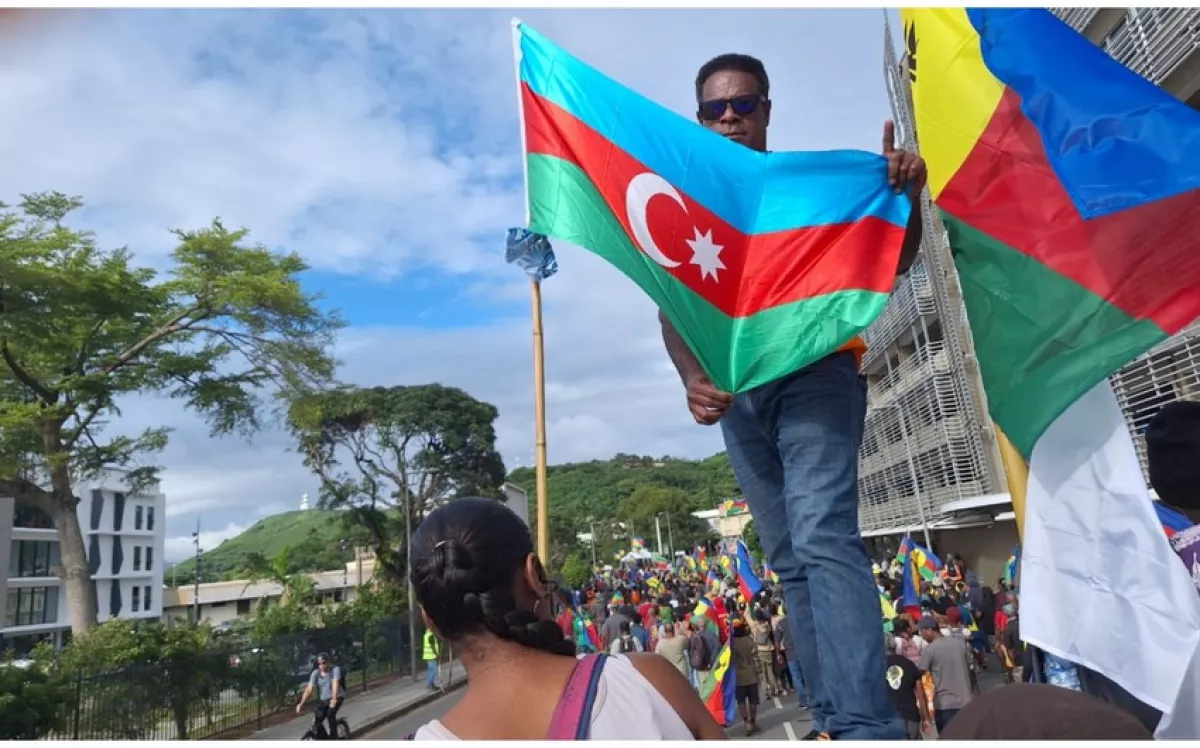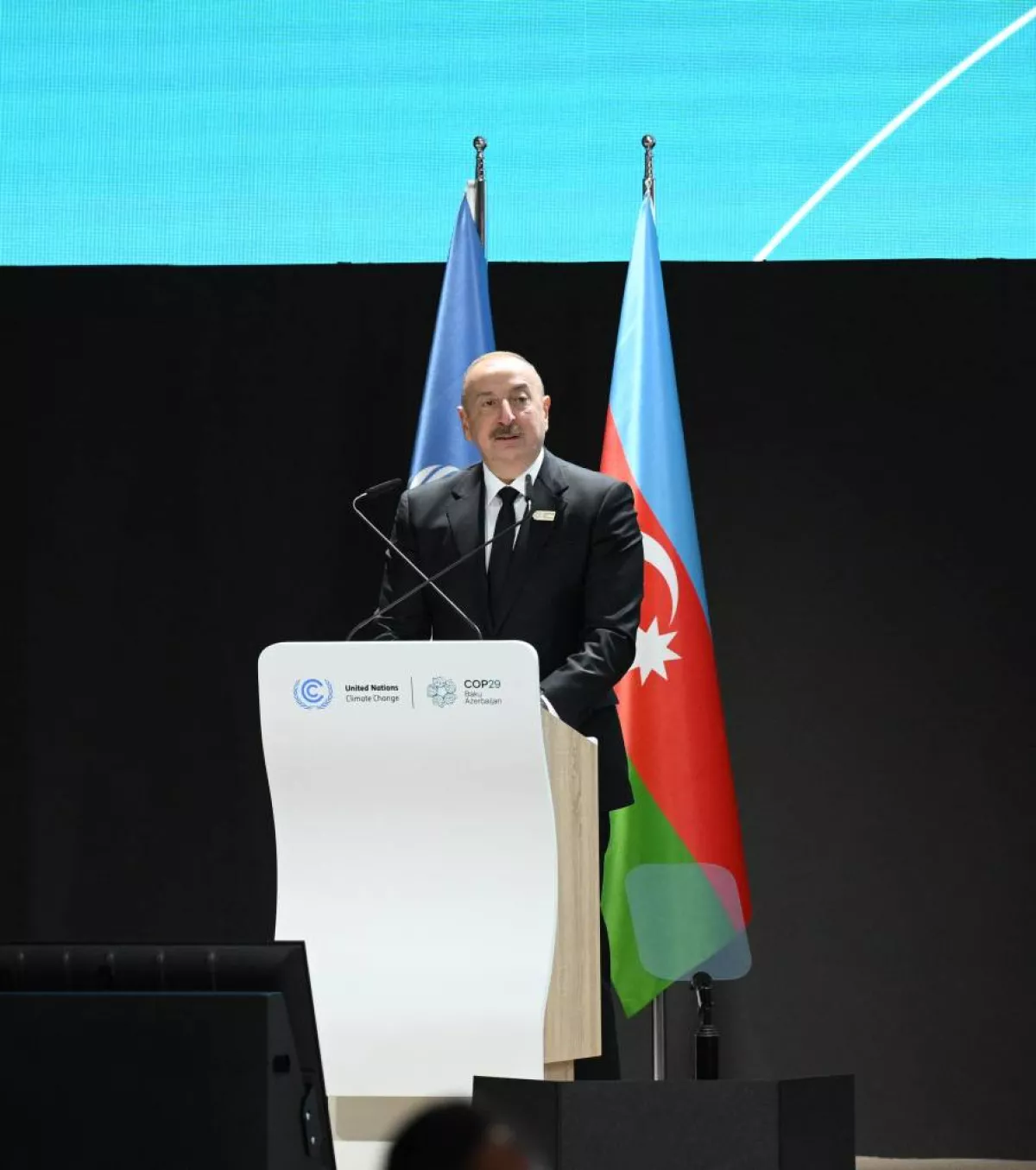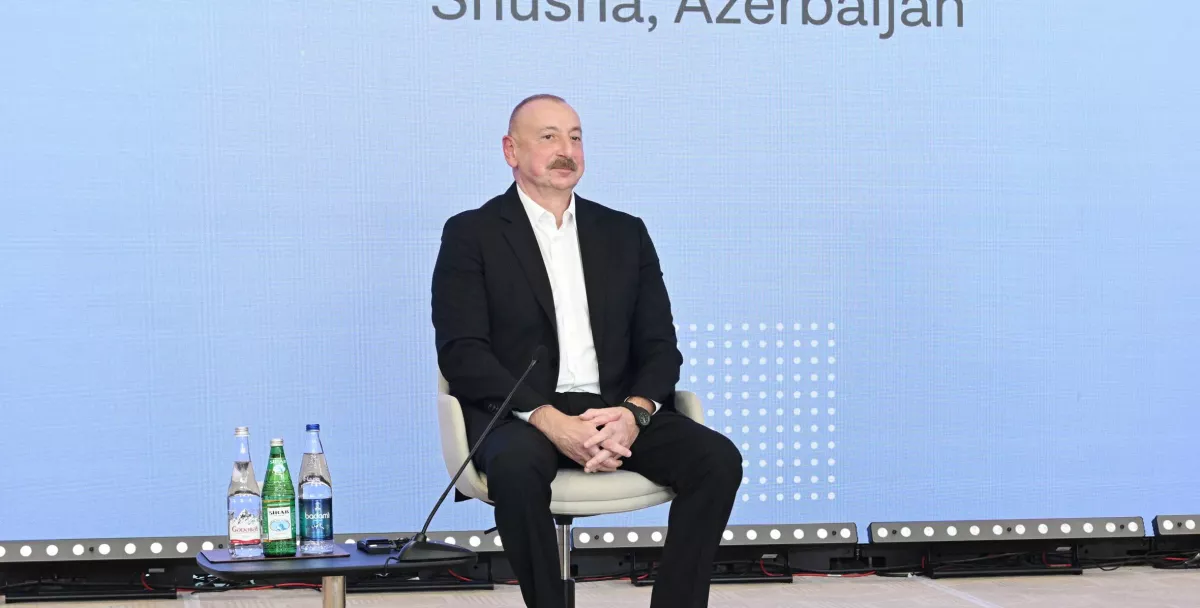A word followed by action Azerbaijan leads global push against neocolonialism
The year 2025 clearly confirms Azerbaijan’s emergence as a major international platform. This is vividly reflected, among other things, in the brilliantly organised high-level global forums held on Azerbaijani soil. Whether it be the 12th Global Baku Forum, the 30th Baku Energy Week, or the 3rd Shusha Global Media Forum (and these are only a portion of the international conferences hosted in Azerbaijan this year).
What is particularly noteworthy is that, alongside flawless organisation, these forums offer the world meaningful ideas and practical solutions aimed at overcoming the planet’s increasingly turbulent and negative environment.

All interested parties witnessed this once again during the Global Media Forum that opened on 19 July in Khankendi, where the President of Azerbaijan Ilham Aliyev delivered another keynote address, sending—as always—important messages to various global actors. In his speech, the head of state touched upon virtually all the pressing issues concerning the international community. For our part, we would like to highlight two of them, which vividly demonstrate the clarity and continuity of Azerbaijan’s foreign policy line—one focused on fulfilling the aspirations of different countries and peoples.
Azerbaijan and the fight against neocolonialism
This aspect is most notably reflected in the unique success of official Baku on the international stage in combating manifestations of neocolonialism. In this context, it is important to note that on 12 July, an agreement was signed in France on the creation of a new state called New Caledonia, according to which the inhabitants of the territory will be granted separate citizenship (they will be allowed dual citizenship and, accordingly, two passports—French and New Caledonian).
Against this backdrop, the anti-French protests that erupted in New Caledonia in May 2024 come to mind, to which the Élysée Palace responded by imposing a state of emergency in the region.

But what a just and principled position Baku took during those days—a stance rooted in Azerbaijan’s earlier steps aimed at defending oppressed peoples—unlike certain other countries that love to portray themselves as “super-democratic.”
Back in July 2023, within the framework of the Non-Aligned Movement (NAM), the Baku Initiative Group (BIG) was established, bringing together representatives of colonised territories such as New Caledonia, French Polynesia, Martinique, and others. The primary mission of this newly formed structure was to support the legitimate struggle against colonialism and neocolonialism in accordance with international norms and principles.
In May 2024, BIG, together with 14 independence movements active in French overseas territories, issued a joint statement in support of New Caledonia, which had been subjected to anti-Kanak decisions by Paris. The document underscored the deliberate violation of the Kanak people’s rights by the French authorities and called for an end to Paris’s colonial policy.
In June 2024, aiming to break the information blockade surrounding the events, BIG organised a roundtable discussion. Then, in July of the same year, in his address at the 2nd Shusha Global Media Forum, President Ilham Aliyev declared that it was Azerbaijan’s duty to assist countries still facing colonialism “to get rid of this disgusting feature of the past.”
France’s actions were described as unacceptable and disgraceful—ones that “must be stopped”—while simultaneously pointing to the wilful blindness of many countries in the face of these flagrant abuses. The head of state then reaffirmed that Azerbaijan would continue supporting peoples suffering under colonialism “until you are free.”

President Ilham Aliyev voiced this perspective loudly and clearly once again during his speech at COP29, stating that “the peoples of the French colonies”—including New Caledonia, French Polynesia, Corsica, Guadeloupe, and other territories—are still “suffering today - in the 21st century - from colonial rule.”
Meanwhile, through the Baku Initiative Group (BIG), a report on the events in New Caledonia was submitted to the UN Human Rights Committee. As a result, the Committee demanded that Paris provide information on the additional deployment of military forces, the arrests of independence movement representatives, and the escalation of tensions on the island.
During his address at the 3rd Shusha Global Media Forum, President Ilham Aliyev described these and similar steps taken by Baku as “our duty as the chair of the Non-Aligned Movement [...] and our position as a country,” noting that in the 21st century, no country “can keep another people under colonial rule.” He stressed that colonial ambitions brutally undermine the fundamental values of the European continent. Echoing this sentiment, the head of state described recent developments in New Caledonia as “a historic precedent,” emphasising, “I don't think it's the end of the story — it’s just the beginning.” As he put it, the struggle must continue to restore territorial integrity and freedom, concluding that “all the territories still under French colonial rule will eventually achieve the same kind of interstate relationship with France that New Caledonia is now attaining.”
Azerbaijan in defence of Small Island Developing States
In parallel, during his speech in Khankendi, President Ilham Aliyev also brought attention to the plight of Small Island Developing States (SIDS). But just as in the context of Azerbaijan’s fight against colonialism, before turning to the key points raised by the head of state, it is worth making a brief historical digression.

In particular, let us recall President Ilham Aliyev’s address at the 2nd Global Media Forum, where he announced Baku’s initiative to launch a support programme for Small Island Developing States (SIDS), including the establishment of a joint fund with the Commonwealth to assist this group of countries. This move was driven by the fact that climate change poses an existential threat to these nations. In this context, Azerbaijan’s role is to encourage “others who have been a little bit passive to follow our example.”
At the SIDS Summit held during COP29 in November 2024, President Aliyev emphasised that “the voices of SIDS must be heard on the global stage.,” calling on all developed countries—“especially those with a colonial past”—to provide substantial financial and technical assistance to small island states, enabling them to develop mechanisms for protection against climate-related threats.
In the same context, he highlighted Azerbaijan’s aid to countries affected by natural disasters, as well as projects implemented in the fields of water supply, food security, and cultural heritage restoration. As the head of state noted, more than ten SIDS nations have benefited from Azerbaijan’s educational scholarship programme by sending students to study at our universities.
However, as President Ilham Aliyev emphasised, leading powers remain extremely reluctant to take concrete decisions in favour of SIDS. In response, at the 3rd Shusha Global Media Forum, he once again called for “decisive support” for small island developing states from the international community—especially given that their very existence largely depends on sea level rise. The head of state also reminded that Baku had allocated “10 million US dollars to a special fund to address climate change in less developed countries.”
Thus, as we can see, Baku continues to make steady progress both in combating neocolonialism and in advancing the interests of SIDS. And whether others choose to acknowledge it or not, it was Azerbaijan’s clear and consistent position that played a decisive role in addressing the issue of New Caledonia. This, without a doubt, serves as a significant example for other nations still suffering the consequences of colonial policies.
In doing so, Azerbaijan has once again demonstrated its geopolitical strength—affirming that the country’s leadership now confidently extends well beyond its immediate region.








